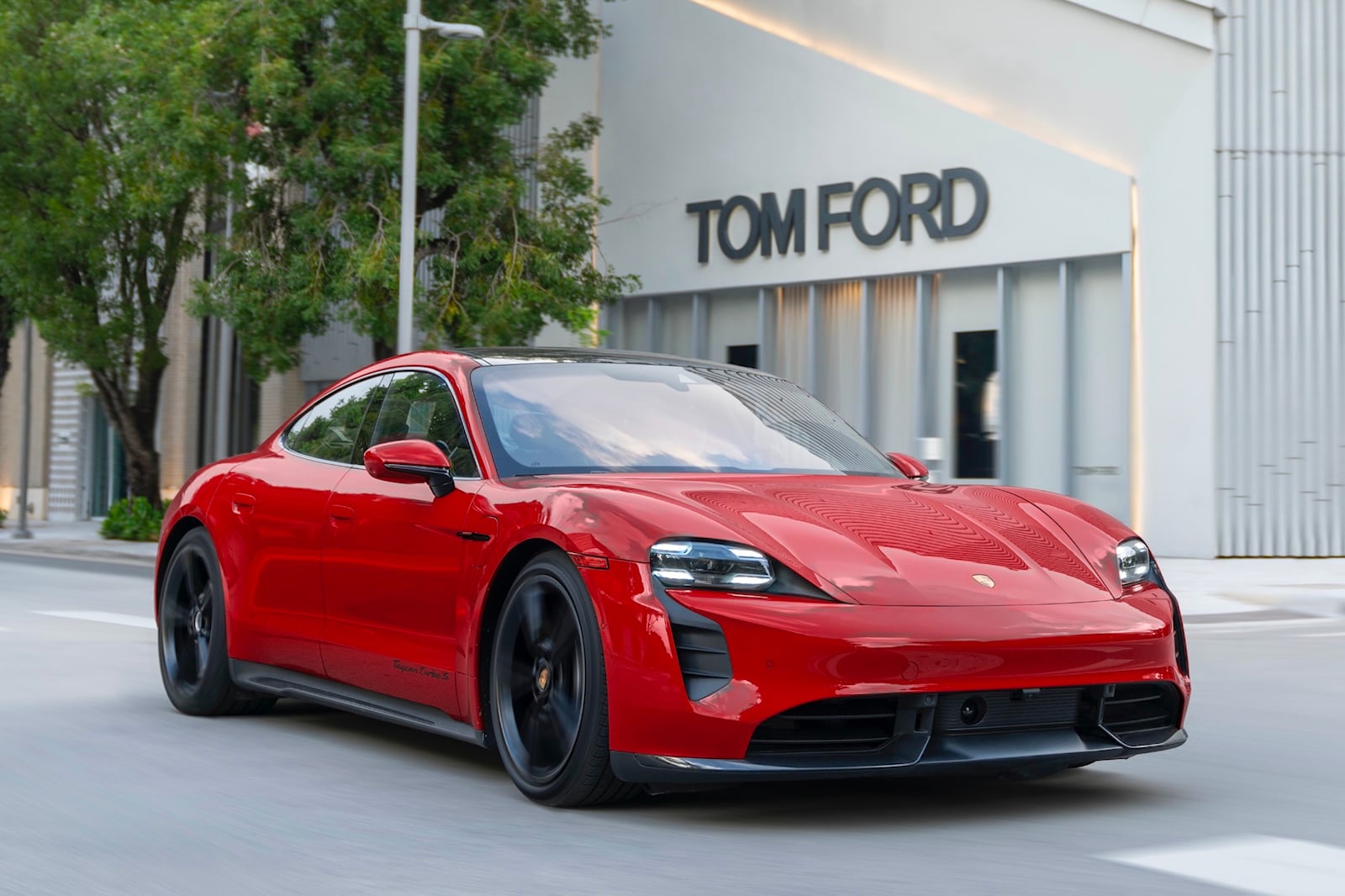- The 2025 Porsche Taycan lineup's pricing has been released, and the electric sports sedan just became a lot more expensive.
- The base price for the Taycan has risen from roughly $92,000 last year to $101,395 for the 2025 model year.
- Sadly, the sporty GTS sedan and GTS Sport Turismo Wagon variants are noticeably absent from Porsche's current U.S. figures, though we expect them to return as well.
Porsche freshens up the Taycan for the 2025 model year with a light facelift and improvements to charging and range. Unfortunately for consumers in the market for a new Taycan, those upgrades come with some big price hikes.
For the entry-model sedans, the base Taycan now starts at $101,395, marking an $8845 increase over last year, while the 4S increases to $120,495. As for the more powerful Turbo and Turbo S sedans, those now start at $175,595 and $210,995, respectively.
- A proposed California bill aims to keep certain new vehicles from exceeding the speed limit by more than 10 mph.
- The bill calls for tech to electronically limit a vehicle's speed starting with the 2027 model year; emergency vehicles would be exempt.
- The bill would allow the driver to disable the speed limiter, which could also be fully disabled by the automaker or (in some cases) by the commissioner of the California Highway Patrol.
Someday in the not-too-distant future, it might no longer be possible to drive a brand-new car faster than 80 mph in California. That's because state senator Scott Wiener earlier this week proposed a new bill that aims to prevent certain new vehicles from going more than 10 mph over the speed limit. In California, the maximum posted speed limit is 70 mph, meaning anything north of 80 mph would be off-limits.
Limiting Speed
The Speeding and Fatality Emergency Reduction on California Streets—or SAFER California Streets, for short—is a package of bills that includes SB 961 that was published Tuesday, which essentially calls for speed governors on new cars and trucks built or sold in California starting with the 2027 model year. These vehicles would be required to have an "intelligent speed-limiter system" that electronically prevents the driver from speeding above the aforementioned threshold.
The speed-limiter tech wouldn't apply to emergency vehicles. There's also language in the bill that the passive device would have the ability to be temporarily disabled by the driver, however, it's unclear in what situations that might apply. The bill also states that automakers would be able to disable the speed limiter fully but presumably only for authorized emergency vehicles. The commissioner of the California Highway Patrol could authorize disabling the speed limiter too at their discretion.
"I don't think it's at all an overreach, and I don't think most people would view it as an overreach. We have speed limits. I think most people support speed limits because people know that speed kills," Wiener said, according to ABC7 news in California.
The proposed legislation is said to be an attempt to address rising traffic fatalities, which in California have reportedly increased by 22 percent from 2019 to 2022. That's according to TRIP, a national transportation research group, that was cited in a press release about SB-961. A separate report by U.C. Berkley's SafeTREC found that from 2017 to 2021 speeding-related deaths in California increased by about 30 percent; nationally they have increased by almost 24 percent during that time.
If the proposed bill gets signed into law, it will make California the first state in the country to require a speed-limiting device. The question would then become which state or states would be next?


